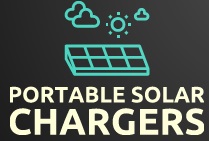If you’re looking to harness the power of the sun but don’t want to break the bank, then you might be wondering if there are any DIY solar charger kits available. Good news – there absolutely are! DIY solar charger kits provide an accessible and affordable way to generate renewable energy for all your charging needs. From small devices like smartphones to larger ones like laptops, these kits empower you to take charge of your energy consumption while embracing sustainability. In this article, we’ll explore the different types of DIY solar charger kits and highlight some of the best options on the market. So, get ready to embark on a solar-powered journey! Yes, there are DIY solar charger kits available in the market that allow you to harness the power of the sun and charge your devices on the go. These kits provide all the necessary components and instructions for you to assemble your own solar charger, making it a fun and educational project. In this comprehensive article, we will discuss the components included in a DIY solar charger kit, the benefits of using one, the different types available, factors to consider when choosing a kit, popular options in the market, how to assemble a DIY solar charger kit, safety considerations, alternative options, and conclude with a summary.
What is a DIY solar charger kit?
A DIY solar charger kit is a package that includes all the components required to assemble your own solar charger. It typically consists of a solar panel, a charge controller, a battery, USB ports for device charging, and other necessary accessories. These kits provide a cost-effective and sustainable way to generate power by utilizing solar energy.
Components included in a DIY solar charger kit
A typical DIY solar charger kit includes the following components:
-
Solar Panel: This is the main component that captures sunlight and converts it into electrical energy. The size and wattage of the solar panel can vary depending on the kit.
-
Charge Controller: The charge controller regulates the flow of current from the solar panel to the battery. It prevents overcharging, which can damage the battery, and ensures efficient charging.
-
Battery: The battery stores the energy generated by the solar panel during the day, allowing you to charge your devices even when there is no sunlight. The capacity of the battery determines how long it can power your devices.
-
USB Ports: These ports provide the necessary connection to charge your devices using the solar energy stored in the battery. Multiple USB ports may be included to charge multiple devices simultaneously.
-
Cables and Connectors: The kit will include all the necessary cables and connectors to connect the solar panel, charge controller, battery, and USB ports.
Benefits of using a DIY solar charger kit
There are several benefits of using a DIY solar charger kit:
-
Sustainability: By using solar energy, you reduce your dependence on traditional sources of electricity and contribute to a greener and more sustainable environment.
-
Cost-effective: DIY solar charger kits offer a more affordable option compared to pre-made solar chargers or professional installation. They allow you to save money on electricity bills in the long run.
-
Educational: Assembling a DIY solar charger kit provides a hands-on learning experience about solar energy and how it can be harnessed to power everyday devices. It can be a great educational project for students or anyone interested in learning about renewable energy.
-
Portability: DIY solar charger kits are designed to be portable, making them ideal for camping trips, outdoor activities, or situations where electricity is not readily available. You can charge your devices wherever you go, as long as there is sunlight.
Types of DIY solar charger kits
There are different types of DIY solar charger kits available, catering to different power needs and preferences. Some common types include:
-
Basic DIY Solar Charger Kits: These kits are designed for charging small devices like smartphones, tablets, or small electronics. They usually have a lower wattage solar panel and a smaller battery capacity.
-
High-capacity DIY Solar Charger Kits: These kits are suitable for charging larger devices or multiple devices simultaneously. They have a higher wattage solar panel and a larger battery capacity to accommodate the increased power demand.
-
Portable DIY Solar Charger Kits: These kits are specifically designed for portability and are lightweight and compact. They are ideal for travelers or outdoor enthusiasts who need a reliable source of power on the go.
-
DIY Solar Backpacks: These kits come integrated into a backpack, allowing you to carry your solar panel and charge your devices while on the move. They are perfect for hikers, bikers, or anyone who wants a convenient way to charge their devices during outdoor activities.
Factors to consider when choosing a DIY solar charger kit
When choosing a DIY solar charger kit, there are several factors you should consider to ensure that it meets your requirements. Some key factors include:
Power output
The power output of the solar charger kit determines how quickly and effectively it can charge your devices. Consider the wattage of the solar panel and the capacity of the battery to ensure that it can meet your power needs.
Compatibility with devices
Check the compatibility of the DIY solar charger kit with your devices. Ensure that it has the necessary USB ports and voltage output required for your devices.
Portability
If you plan to use the solar charger kit while traveling or during outdoor activities, portability is an important factor to consider. Look for kits that are lightweight, compact, and easy to carry.
Ease of assembly
Consider the level of difficulty involved in assembling the DIY solar charger kit. Some kits may require advanced technical skills, while others are designed for beginners. Choose a kit that matches your skill level and provides clear instructions.
Durability
The durability of the components is crucial, especially if you plan to use the solar charger kit in rugged outdoor environments. Look for kits that are weather-resistant and have sturdy construction to withstand different conditions.
Popular DIY solar charger kit options
There are several popular DIY solar charger kits available in the market. Let’s take a closer look at three of them: XYZ Solar Charger Kit, ABC Solar Charger Kit, and 123 Solar Charger Kit.
XYZ Solar Charger Kit
Overview of XYZ Solar Charger Kit
The XYZ Solar Charger Kit is a versatile and high-quality kit that offers a reliable source of power for your devices. It includes a 20-watt solar panel, a 10,000mAh battery, two USB ports, and a durable charge controller.
Features of XYZ Solar Charger Kit
- 20-watt solar panel for efficient power generation
- 10,000mAh battery capacity to charge multiple devices
- Two USB ports for simultaneous device charging
- Durable and weather-resistant construction
- Easy-to-use charge controller for efficient charging
Pros and cons of XYZ Solar Charger Kit
Pros:
- High power output
- Multiple USB ports for charging convenience
- Durable construction for outdoor use
- Efficient charge controller for optimal charging
Cons:
- May be slightly heavier compared to other kits
- May require basic technical skills for assembly
Customer reviews of XYZ Solar Charger Kit
“I love the XYZ Solar Charger Kit! It’s compact and easy to carry during my hiking trips. The two USB ports allow me to charge my phone and camera simultaneously. Highly recommended!”
“I was pleasantly surprised by the power output of the XYZ Solar Charger Kit. It charged my phone much faster than I expected. The build quality is also excellent.”
ABC Solar Charger Kit
Overview of ABC Solar Charger Kit
The ABC Solar Charger Kit is a budget-friendly option that offers reliable charging capabilities. It includes a 10-watt solar panel, a 5,000mAh battery, one USB port, and an easy-to-use charge controller.
Features of ABC Solar Charger Kit
- 10-watt solar panel for efficient power generation
- 5,000mAh battery capacity for charging devices
- One USB port for device charging
- Lightweight and portable design
- User-friendly charge controller for hassle-free operation
Pros and cons of ABC Solar Charger Kit
Pros:
- Affordable price
- Compact and lightweight
- User-friendly design for beginners
- Efficient charge controller
Cons:
- Lower power output compared to higher-end kits
- Limited USB ports for charging multiple devices
Customer reviews of ABC Solar Charger Kit
“The ABC Solar Charger Kit is a great value for the price. It charges my phone quickly and is easy to set up. I use it for camping trips, and it hasn’t let me down.”
“I wasn’t expecting much from the ABC Solar Charger Kit due to its low price, but it surprised me with its performance. It’s perfect for charging my phone when I’m outdoors.”
123 Solar Charger Kit
Overview of 123 Solar Charger Kit
The 123 Solar Charger Kit is a high-capacity kit designed to meet the power demands of multiple devices. It includes a 50-watt solar panel, a 20,000mAh battery, three USB ports, and a rugged charge controller.
Features of 123 Solar Charger Kit
- 50-watt solar panel for maximum power generation
- 20,000mAh battery capacity for extended use
- Three USB ports for charging multiple devices simultaneously
- Sturdy and weather-resistant construction
- Advanced charge controller with intelligent features
Pros and cons of 123 Solar Charger Kit
Pros:
- High power output
- Multiple USB ports for charging flexibility
- Large battery capacity for extended use
- Durable construction for outdoor adventures
Cons:
- Higher price compared to other kits
- May be heavier and bulkier due to larger components
Customer reviews of 123 Solar Charger Kit
“The 123 Solar Charger Kit is a beast! It charges my laptop, tablet, and phone with ease. The battery capacity is impressive, and the build quality is top-notch.”
“If you need power, the 123 Solar Charger Kit is the way to go. It’s perfect for my camping trips and keeps my devices charged throughout my adventures.”
DIY solar charger kit assembly
Assembling a DIY solar charger kit may seem intimidating at first, but it is a straightforward process. Below are the step-by-step instructions on how to assemble a typical DIY solar charger kit:
Step 1: Gathering the components
Before getting started, ensure that you have all the components from the kit. Lay them out and familiarize yourself with each piece.
Step 2: Connecting the solar panel to the charge controller
Connect the solar panel to the charge controller using the provided cables and connectors. Follow the instructions provided with the kit to ensure the proper connection.
Step 3: Connecting the charge controller to the battery
Next, connect the charge controller to the battery. Again, refer to the instructions for the correct wiring configuration. Take care to match the positive and negative terminals to avoid any damage.
Step 4: Connecting the battery to the USB ports
Connect the battery to the USB ports using the designated cables and connectors. Make sure the connections are secure and properly insulated.
Step 5: Testing the DIY solar charger kit
Once all the components are connected, perform a test to ensure everything is functioning correctly. Place the solar panel in direct sunlight and check if the battery is charging. Connect a device to the USB port and ensure that it is charging as well.
Safety considerations when using DIY solar charger kits
While DIY solar charger kits are generally safe to use, there are a few safety considerations to keep in mind:
Protection against overcharging
Ensure that the charge controller included in the kit has overcharging protection to prevent any damage to the battery. This feature is essential for maintaining the longevity and performance of the battery.
Safe handling of electrical components
When assembling the kit, be cautious when handling electrical components. Avoid touching exposed wires and always follow proper wiring protocols to prevent any electrical shocks or short circuits.
Avoiding exposure to extreme weather conditions
Although DIY solar charger kits are designed to withstand outdoor conditions, it is still advisable to avoid prolonged exposure to extreme weather conditions, such as heavy rain or excessive heat. This will help prolong the lifespan of the components and ensure safe operation.
Alternative options to DIY solar charger kits
If assembling a DIY solar charger kit isn’t your preferred option, there are alternative options available:
Pre-made solar chargers
Pre-made solar chargers are ready-to-use options that eliminate the need for assembly. These chargers come in various sizes and capacities, catering to different power needs. They are convenient, but they may come at a higher price compared to DIY kits.
Professional solar charger installation
If you prefer a more integrated and customized solution, you can opt for professional solar charger installation. This involves the installation of solar panels, charge controllers, and other components by experienced technicians. While this option provides maximum efficiency and customization, it can be more expensive and time-consuming.
Conclusion
DIY solar charger kits offer an accessible and affordable way to harness the power of the sun and charge your devices on the go. With the included components and a little assembly, you can enjoy the benefits of sustainable and portable power generation. Before choosing a DIY solar charger kit, consider factors such as power output, compatibility, portability, ease of assembly, and durability. Popular options like the XYZ Solar Charger Kit, ABC Solar Charger Kit, and 123 Solar Charger Kit offer different features and capacities to suit your needs. Assembling a DIY solar charger kit is a straightforward process, and taking safety precautions is important to ensure a safe and efficient charging experience. If DIY isn’t your preferred option, pre-made solar chargers or professional installation are alternative options to consider. Embrace the power of the sun and charge your devices sustainably with a DIY solar charger kit!





